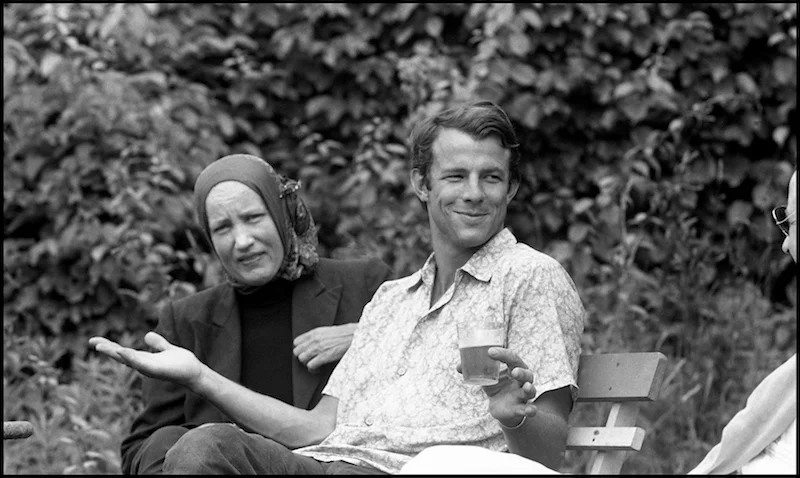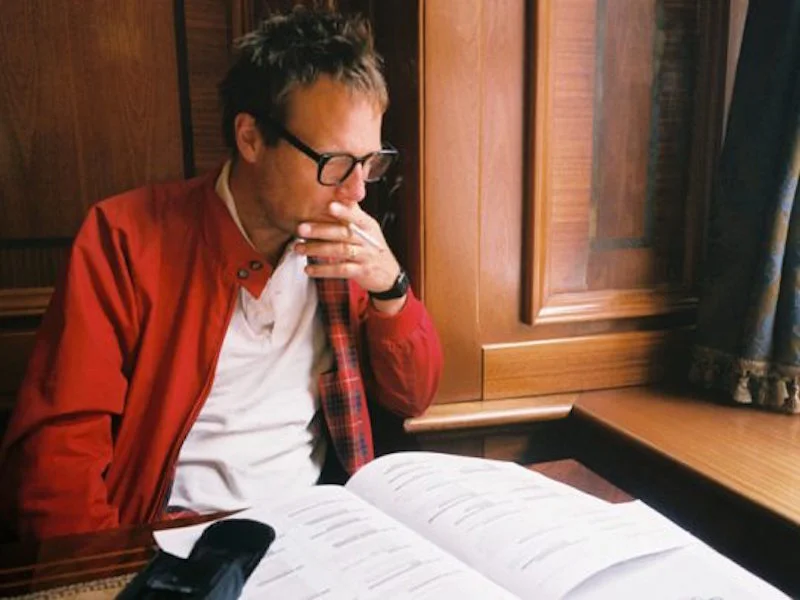Grey Gardens. We’ve heard of the Maysles documentary, we’ve watched the TV fiction film starring Drew Barrymore and Jessica Lange, we may even have attended the Broadway musical about them. Lets face it, those Beales girls are American icons. The grand royalty of dysfunctional mother/daughter relationships yet touched by elegance and undeniable status.
But all through the narrative, Big Edie and Little Edie have somehow been made campy and unreal. Yes the original 'Grey Gardens' is a documentary, but I've never felt the true connection with its characters, even though their story shared so much of my own American history, in both time, events and place.
Now, Göran Hugo Olsson, one of my personal favorite filmmakers and an all around cool human being, has made a new film about Grey Gardens. It is new, in the sense that it will be released in the US this week, yet Olsson's 'That Summer' uses the oldest footage available of the Beales, the original film made by Andy Warhol and Peter Beard and in the process, shows us how to fall in love. Because at the center of 'That Summer' there exists a love story between the filmmaker and his muse Lee Ratziwill, a tale of summer romance with a twist bound by the grand illusion of an ambiance -- that magical moment in time when friends, location and a certain scent in the air creates the impression that everything is possible.
Edith Ewing Bouvier Beale and Edith Bouvier Beale, the infamous Little Edie and Big Edie, are of course the indisputable subjects of 'That Summer' and yet the underlying theme here is the care of their cousin Ratziwill towards them, and the wonder-woman-like passion she possesses to try and make their lives better. She enrolls her then-boyfriend Peter Beard and his friends (Warhol and Truman Capote among them) and along they go for this wild rollercoaster ride with the Beales, who never miss a chance to entertain us and tickle our fancy.
Olsson is of course the grand master of remixing existing footage, as he did in 'The Black Power Mixtape 1967-1975' and 'Concerning Violence' before this film. Through his masterful touch, the until-now lost footage of 'Grey Gardens' turns into a love poem, a sonnet to both its subjects and the NY of those good ol' olden days.
I caught up with Olsson during Berlinale, where the film screened after premiering at Telluride. 'That Summer' opens theatrically on May 18th and is distributed by Sundance Selects.
Göran Hugo Olsson
How did you decide on this project, which in a way is very different from your typical work with archival footage?
Göran Hugo Olsson: In a way this is not archival footage, it’s lost footage. It’s different. The story is like this, my producers were at this dinner with Peter Beard. And he told them about this footage, and they thought, well, it may be the same old thing or too little. Then, they were told more about it and Justin called me because my history is kinda… When I was fourteen/fifteen I remember I was into different worlds — one was that of political struggle and one was the world of New York and art and film. And I was totally alone in that world. So I remember vividly biking as a fourteen/fifteen year old young person from an ANC meeting, to the local library to pick up the latest Interview magazine.
So those were the two worlds that you were navigating!
Olsson: Yes, and I didn’t realize this until now, I think the struggle for me was between those two worlds. The ANC-support groups — we raised money, awareness, etc — and the life of artists and filmmakers and people in NY which was the ultimate goal. Like, that’s how it is to be liberated, how you blend through classes and gender and age. Studio 54 — that was the goal! And the gay thing and people liberated… I’ve always been trying to do both. Because I’ve done a lot of Swedish documentaries, with immigrants, war documentaries and in 'Mixtape' we could unite that, the artists and the movement.
So that is my dual background, which I didn’t really connect at the time but there was something that made sense to me.
What drew you to the material itself, was it the fact that it had been shot by Peter Beard and Andy Warhol, or was it more about the subject, those Grey Gardens girls?
Olsson: It was both, because in order to pull this big thing through you have to have different hooks. Everything has to be aligned and totally in order for you to go forward. So it is the situation at the house, with the Beales but also a tremendous respect to the filmmaker and the community kind of thing. That is all came from the love of Lee, and everything. It’s both paying respect to the artistic world and the fascination from the situation from the Beales and how they are.
There is something magical about how you, in your typically way, stay out of the documentary yet draw us into the story and their world perfectly. It’s got a lot to do with how the film was shot but I imagine, equally as much with how you edited the film. I’ve never seen this story told quite this way, so intimately.
Olsson: I want to thank you for saying that, because we wanted to design the film in a very open way and not squeeze it with comments from different people making a point. I struggled hard to get the feeling that the audience would have the same feeling that we had, when we first saw the footage. You feel like it’s untouched and unedited. And I think that also the key in that world is Lee Ratziwill.
In classic documentaries, I feel a filmmaker should always stay within his own community. That you have a strong relation to the person in front of the camera. Even with 'The Black Power Mixtape', it was a film about how the Black Power movement was seen in Sweden. And that’s a trick, in a way. It’s my material, I was brought up with it in a way, it was my television station…
So how are the Edies your material?
Olsson: Because we all could relate to them, we’ve all seen them so much. The funny thing with me working on this I see images of them on the beach and I know them. They feel like my own extended family. For many of us they do that. I see photographs of my own family sometimes and I don’t know where they are but I see them on the beach and I know where they are. That’s strong.
I don’t think that any that any documentary filmmaker should move outside their own community to make a film.
I love that here are these two iconic women and yet, you’re right, they are part of our heritage.
Olsson: And I think, and this might sound super crazy to you, the Beales situation, or the situation at the house, it’s ultimately about how you are allowed to behave as a woman. How eccentric are you allowed to be, from society’s view. And they are protected by their class, up to a certain level but after that level, it doesn’t matter. You also have Lee Ratziwill coming in, and she’s this super person, she handles her relatives, the laborers, the lawyer, the press, her kids, the government, the handsome boyfriend, the eccentric friends — Truman [Capote] and Andy. She’s doing everything excellently and that’s how you should behave as a woman. Super Woman.
So she’s the sort of super hero of the film?
Olsson: And what’s so nice about this material is that she’s the way in also. They are not exploitational because they really care about these people.
It’s unusual because you typically associate her with this high society lady, and here she is, being very human with her relatives. That’s what your film does beautifully, it doesn’t make them campy, it makes them human — they’ve been campy for too long.
Olsson: Because Lee and Peter have this relation, you can only do documentaries when you have that relationship, that confidence. Of course, they still perform to the camera and to other people, but less. What’s also interesting is that they are prototypes of what we see today, with Instagram. Artistically and in the narrative they are the prototypes of what we see today. And we all have an eccentric relative we’ve considered making a documentary about. And of course Warhol was the engine in that.
Is there anything in particular that you wish your average audience member walks away feeling after watching this film?
Olsson: As much as we, I’m speaking for the team here, want radical change in justice in this world, we also acknowledge art, love and a romantic feeling. We all had a summer when we were in love, we had these great friends, we didn’t have problems, all was possible, money wasn’t that big an issue maybe. And we think back on that summer and that’s a natural part of being human — being. And the tagline for the film is “Nostalgia isn’t what it used to be.” From the Simone Signoret book.
You shouldn’t be afraid of that, and feel too conservative. Also I think love is such a powerful force to all people and documentaries about it are so hard to make. And this touched upon love in a way, at least the image of love. I hope it will come across like that

